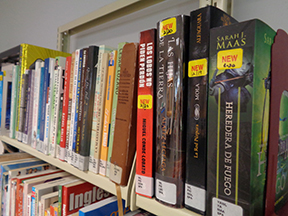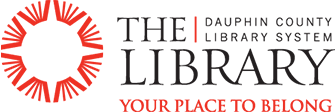As they choose readings for The Library’s Storytime sessions, staff have a wide range of books featuring a diversity of faces.
“I would hope that the kids who come to Storytime now would see someone who looks like them and doesn’t look like them, and that would become the norm,” says Youth Services Administrator Samantha Lowe. “It’s not that they wouldn’t see race, but they would grow up knowing there is a diversity of experiences they could appreciate and accept.”
The Library’s inclusive collection didn’t happen by chance.
In recent years, the staff has deliberately sought out books that feature diversity in faces and experiences.
For instance, not just historical looks about slavery and the Civil Rights movement, but depicting Black characters, “doing the same things that white faces are doing, people doing regular, everyday things,” Lowe says.
The effort gained national recognition when, in April 2019, Bates College’s Diverse Picture Book Finder examined picture book collections nationwide and announced the most diverse. Among institutions serving 200,000 to 499,999 people, Dauphin County Library System made the top five.
Library staff also ensure guides developed for parents and teachers – especially as children face the prospect of continued at-home schooling due to the COVID-19 virus – reflect Dauphin County’s diversity.
“We have to reinvent everything now anyway, so let’s make sure we are doing it right,” says Lowe.
Diversity audit goes deeper

Diversity matters in adult books, too, and since spring 2019, The Library has been conducting a diversity audit. It’s a close look at The Library’s 400,000 titles to make sure they mirror the community and project diverse perspectives.
“A diversity audit is looking at not just numbers but also what’s reflected in those numbers,” said Collection Management Administrator Yvonne Carmicheal.
The process is continuous as The Library assesses whether authors reflect diversity in race, ethnicity, religion, gender identity, and disability. The audit also examines whether titles reflect real life – for instance, not just stories of Native Americans in the Old West, but Native Americans of today, dealing with contemporary issues.
Staff will submit initial findings to The Library board’s public services committee and will continue conducting the audit as a matter of course.
“The audit represents an ongoing commitment to our mission of serving the needs of all the members of our community,’’ says Executive Director Karen Cullings. “We are working to ensure inclusion and equality in everything we do.’’
Reading list for racial justice
As builders of community connections, The Library developed a new list of titles useful for anyone seeking a better understanding of race relations. The list, titled “Knowledge Promotes Understanding,” includes recommended reading for adults, young adults, and children.
Community groups and Library members can get involved by submitting suggested titles for the list and all collections.
As The Library reopens in phases, it is setting the stage for ongoing dialogue, Cullings says.
“Libraries are trusted spaces where people can discover new perspectives and start discussions that enlighten and inform,” she says. “As the groundswell grows for racial justice, the Dauphin County Library System stands strongly against racism and strives to provide resources for conversation, action, and fostering understanding.”




